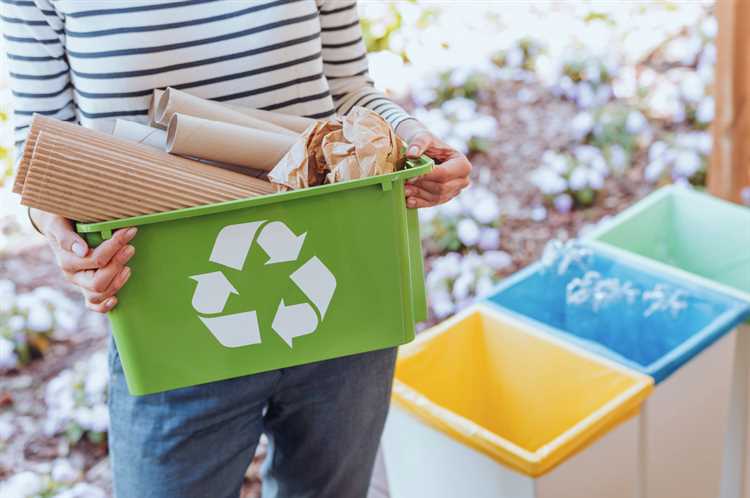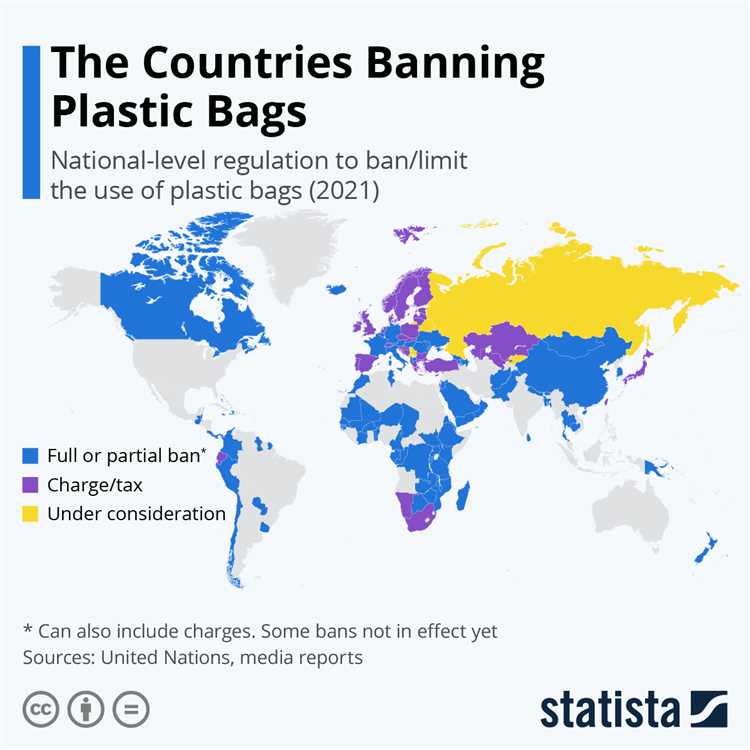In recent years, the issue of plastic pollution has gained significant attention worldwide. Governments and organizations around the globe have been implementing various measures to tackle this environmental crisis. One of the countries that has taken a firm stand against plastic bags is the United Kingdom.
The UK has been at the forefront of the battle against plastic waste, and the ban on plastic bags is one of the key initiatives they have adopted. The government introduced the ban to reduce the harmful effects of plastic bags on the environment and wildlife.
Since the ban was implemented, the use of plastic bags across the UK has significantly decreased. Shoppers are now encouraged to bring their own reusable bags when they go shopping, reducing the consumption of single-use plastic bags. The ban has also prompted retailers to switch to more environmentally friendly alternatives, such as paper and biodegradable bags.
This article will delve deeper into the UK’s plastic bag ban, exploring the reasons behind this decision, its impact on the environment, and the steps taken by the government and individuals to support this initiative. Stay tuned to learn more about the UK’s efforts in fighting plastic pollution!
- The Environmental Impact of Plastic Bags
- 1. Pollution
- 2. Wildlife and Ecosystems
- Legislation and Guidelines for Reducing Plastic Bag Usage
- Timeline of the UK Plastic Bag Ban
- 2002:
- 2007:
- 2011:
- 2014:
- 2015:
- 2019:
- Results and Effects of the Ban
- Comparison to Other Countries’ Plastic Bag Policies
- Germany
- France
- Australia
- Kenya
- Q&A:
- Why did the UK ban plastic bags?
- When did the UK ban plastic bags?
- What are the alternatives to plastic bags in the UK?
- Did the ban on plastic bags have a positive impact?
- Are there any exceptions to the ban on plastic bags in the UK?
- When did the UK ban plastic bags?
The Environmental Impact of Plastic Bags
Plastic bags have had a significant negative impact on the environment. The production and disposal of these bags contribute to pollution and pose a threat to wildlife and ecosystems.
1. Pollution
The production of plastic bags requires the use of fossil fuels, leading to the emission of greenhouse gases. These gases contribute to climate change and global warming. Additionally, the manufacturing process releases toxic chemicals into the air and water, further polluting the environment.
Plastic bags are also a major source of visual pollution. They litter streets, parks, and water bodies, creating an unsightly and dirty environment.
2. Wildlife and Ecosystems
The disposal of plastic bags poses a serious threat to wildlife and ecosystems. Animals can mistake plastic bags for food and ingest them, leading to suffocation, internal injuries, and death. The presence of plastic bags in water bodies can harm marine life, leading to entanglement and ingestion.
Furthermore, plastic bags do not biodegrade easily. Instead, they break down into smaller microplastics over time, which can enter the food chain and accumulate in the bodies of animals, causing harm to both wildlife and humans.
| Impact | Explanation |
|---|---|
| 1 | Plastic bags contribute to pollution and climate change due to the emission of greenhouse gases during production. |
| 2 | The manufacturing process of plastic bags releases toxic chemicals, further polluting the environment. |
| 3 | Plastic bags litter streets, parks, and water bodies, creating visual pollution. |
| 4 | Wildlife can mistake plastic bags for food, leading to suffocation, internal injuries, and death. |
| 5 | Plastic bags do not biodegrade easily, breaking down into microplastics that can harm animals and humans. |
In conclusion, the environmental impact of plastic bags is significant and far-reaching. It is essential to reduce their usage and find sustainable alternatives to mitigate the harm caused to our planet.
Legislation and Guidelines for Reducing Plastic Bag Usage

In an effort to combat the environmental impact of plastic bags, the UK government implemented a series of legislation and guidelines aimed at reducing their usage. These measures have been in response to the growing concern over the negative effects of plastic bags on marine life, landfills, and overall pollution.
One of the significant milestones in reducing plastic bag usage was the introduction of the single-use carrier bag charge in 2015. This legislation requires all large shops in England to charge a minimum of 5p for each single-use plastic bag issued to customers. The revenue generated from these charges is often donated to environmental causes or used to implement further measures to reduce plastic waste.
Furthermore, Scotland took an even more stringent approach by introducing a total ban on single-use plastic bags in 2014. This ban has since proven to be successful, with Scotland reporting a significant decrease in plastic bag usage as a result. Wales and Northern Ireland have also implemented similar measures, resulting in a substantial reduction in plastic bag consumption.
In addition to legislation, the UK government has also introduced guidelines to encourage retailers and consumers to adopt sustainable alternatives. These guidelines include promoting the use of reusable bags, such as jute or cotton bags, which are more durable and environmentally friendly. Retailers are also encouraged to provide incentives, such as discounts or loyalty points, to customers who bring their own bags.
Education and awareness campaigns have played a crucial role in raising public consciousness about the negative impact of plastic bags. The government has partnered with environmental groups and organizations to promote responsible consumption and waste management. These campaigns emphasize the importance of reducing, reusing, and recycling plastic bags to minimize their environmental footprint.
Overall, the UK’s legislation and guidelines for reducing plastic bag usage have been successful in curbing their consumption. The introduction of charges and bans, along with efforts to promote sustainable alternatives, has led to a significant reduction in plastic bag usage nationwide. This serves as an example for other countries to follow in their fight against plastic pollution.
Timeline of the UK Plastic Bag Ban
Here is a timeline showing the progression of the plastic bag ban in the United Kingdom:
2002:
The UK government introduces a voluntary agreement with retailers to reduce the number of plastic bags given to consumers.
2007:
The voluntary agreement proves unsuccessful as the number of plastic bags distributed continues to rise.
2011:
The Welsh government becomes the first in the UK to introduce a charge of 5 pence per plastic bag.
2014:

The Scottish government follows Wales’ lead and introduces a 5 pence charge on single-use plastic bags.
2015:
England introduces a 5 pence charge on plastic bags, following the success of the scheme in Wales and Scotland.
2019:
All retailers across the UK, regardless of size, are required to charge a minimum of 5 pence for plastic bags.
This timeline highlights the gradual progression of the UK plastic bag ban from a voluntary agreement to a mandatory charge across the entire country.
Results and Effects of the Ban
The ban on plastic bags in the United Kingdom has had significant results and effects since its implementation.
Firstly, there has been a significant reduction in the usage of plastic bags. According to official government statistics, the number of single-use plastic bags distributed by major supermarkets in England decreased by 90% between 2015 and 2017. This reduction is a clear indication that the ban has had a positive effect on reducing plastic waste.
Furthermore, the ban has also led to changes in consumer behavior. People have become more conscious of their plastic usage and have started using reusable bags instead. This shift in consumer behavior has not only reduced plastic waste, but it has also encouraged people to adopt more sustainable lifestyles.
In addition, the ban has had positive environmental impacts. Plastic bags, when not properly disposed of, can end up in waterways, oceans, and landfills, causing harm to wildlife and ecosystems. By reducing the usage of plastic bags, the ban has helped minimize pollution and protect the environment.
Moreover, the ban has also had economic effects. The production and disposal of plastic bags have costs associated with them, such as manufacturing expenses and waste management costs. By reducing the demand for plastic bags, the ban has resulted in cost savings for businesses and the government.
Overall, the ban on plastic bags in the United Kingdom has proven to be successful in reducing plastic waste, changing consumer behavior, and protecting the environment. It serves as an example for other countries and regions to follow in their efforts to combat plastic pollution and promote sustainability.
Comparison to Other Countries’ Plastic Bag Policies
While the UK has implemented a ban on single-use plastic bags, it is not the only country taking action to reduce plastic waste. Here is a comparison of plastic bag policies in other countries:
Germany
In Germany, plastic bag usage is not banned, but there is a charge for each bag used. This has significantly reduced the consumption of single-use plastic bags, encouraging people to bring their own reusable bags when shopping.
France

France has enforced a ban on single-use plastic bags since 2016. The ban extends to all types of plastic bags, including those made from biodegradable materials. The country has also implemented a charge for reusable bags to further discourage their use.
Australia
In Australia, the approach to plastic bag policies varies across states and territories. Some states have introduced bans on single-use plastic bags, while others have implemented a charge for each bag used. This has significantly reduced plastic bag usage and encouraged the use of reusable bags.
Kenya
Kenya has one of the strictest plastic bag policies in the world. The country has imposed a complete ban on the import, manufacture, and use of plastic bags, including those produced from biodegradable materials. Violators can face hefty fines and even imprisonment.
These examples show that countries around the world are taking different approaches to address the issue of plastic bag waste. While some have implemented bans, others have opted for charges or a combination of measures to reduce plastic bag consumption. The UK’s ban on single-use plastic bags is part of a global effort to combat plastic pollution and encourage sustainable alternatives.
Q&A:
Why did the UK ban plastic bags?
The UK banned plastic bags to reduce environmental pollution and encourage the use of more sustainable alternatives.
When did the UK ban plastic bags?
The UK implemented a ban on single-use plastic bags in October 2015.
What are the alternatives to plastic bags in the UK?
After the ban, people in the UK started using reusable bags made of cloth, jute, or other sustainable materials as alternatives to plastic bags.
Did the ban on plastic bags have a positive impact?
Yes, the ban on plastic bags has had a positive impact on the environment. It has reduced the number of plastic bags in circulation and encouraged people to adopt more sustainable habits.
Are there any exceptions to the ban on plastic bags in the UK?
Yes, there are some exceptions to the ban. Small retailers and businesses are still allowed to provide plastic bags, but they must be biodegradable or charge a minimum fee for each bag.
When did the UK ban plastic bags?
The UK officially banned single-use plastic bags in October 2015.